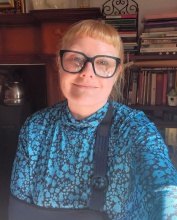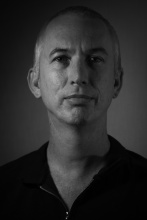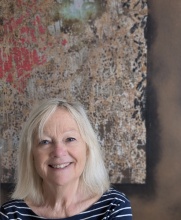We are delighted that Pascale Petit has chosen the three winning poems. Below are her comments.
The standard was extremely high – I hope everyone who entered feels a sense of achievement – just writing poems then sending them into the ether is an act of faith, and I loved so many entries. I had difficult decisions to make deciding on the winners – there were plenty of contenders. In the end, I went with the poems that haunted me the most, that took several readings before they revealed deeper layers. Those on the shortlist please be encouraged – I had many favourites. Thank you to the Plough Poetry Competition team for all you do to promote and celebrate poetry.
First prize: ‘Hwæl’ – Jane Burn
If our planet was called Ocean, this poem might be her song. It took me two reads to realise who or what is speaking, and this initial ambiguity adds to its power. ‘Hwæl’ is a wonder, a charm against extinction and climate catastrophe told in luxurious tercets packed with fresh, surprising images, a hopeful hymn to nature and mother-love.
Second Prize: ‘False Pastoral’- Damen O’Brien
‘False Pastoral’ shows us the struggles, brutality and pity of farm life with accomplished precision and a robust, hyper-real texture. I cannot unsee the last unforgettable couplet, it is etched in my heart, all the more because of the grace of its indelible image.
Third Prize: ‘Walking Dartmoor with Dad on an Alzheimer Morning’ Mary Gilonne
A tender paean to a parent’s loss of memory, and to the half-vanished landscape of Dartmoor, where the personal melds with a universal sense of loss – the moor would once have been forested. The form, with its branch-work of synaptic gaps, perfectly suits this gentle and elegiac piece.
The winners of the Plough Prize 2025 are:
1st Prize: Jane Burn
Jane says: Hwæl began as an exploration of our human need to name and claim – to name and order the world in ways which have helped us understand it from our own point of view. Considering where a name comes from has always fascinated me – from Ursula K. Le Guin’s concept of true names, to fauna and flora, to the name badges I and many others have had to wear at work, our nomenclatures weave an intricate web of perceived ownership, of belonging, of identity, control, exposure, intimacy and comprehension. The true name of a different species, like the whale, is ultimately unknowable. I tried to imagine the ways in which a whale might choose to name itself, and how this naming might define its lived experience, its history and memory. Of course, this is something I cannot know and indeed can only view through a human lens.
Hwæl
my name is Song—body sunk long fathoms down, throat a cave
of billow and break, my salt voice ripples far—sing kin, sing eat,
sing mate, sing my own path to where, to who, to how we live—
our notes pass like ghosts through water, mapping the miles
with melody—how long have I been alive?—how many acres of sea
have I held to my chest, pulled past my heart?—heart room,
heart full—my children, so gradual in growth—I remember month
on month, the ovum’s woken jewel and one day, pain—a slithering—
the weight of life from dream to seed, to trembling, new-breath,
soft-pelt calf—womb-church, womb-hymn, this elusive miracle—
my name is Mother, and love is this—my milk, spilling its cloud
into the ocean—milk, diffusing like an angel’s wing—
my baby’s mouth filled with paradise—her tiny tongue, tiny ribs
and nodes of spine—fragments of the story she will slowly bloom
to write—the waves are pearled with many flickering fry,
a glutting swarm, a tongue-sweet endless baleen bite of bread—
our summer’s haul of nourishment, pink, swirling shoaling—build us,
build us blubber thick our walls of hoarded fat—have you ever seen
the glow of krill on the glassy lid of the sea?—have you ever spun
your air into a bubbled web, a silver net, and finned your way up, up as fast
as a body like mine can go?—up, through the dark loam sea of the night,
mouth wide as bones allow and swallow the diatom’s good, swallow
the bright coin of the reflected moon—devour the shimmering scales—
this is the taste of Heaven—my name is Chatelaine, mistress of this great
and sodden home, roaming room to endless wide grey room, my fins
unlocking peak and trough as if they were keys—my name is Deep—
from down, far down below, my little eye, marvelling up at the beams
of dayabove light, the shafts cutting across us like the softest of knives—
a flense of sun—like underwater argent boles, a submarine forest,
the steeping beams dividing the cold with their warmth—my name
is Ice—five thousand miles from balm to berg, to the cathedral
of the coldest ocean, to the creaking hymns the crystal floes intone—
the sea smells of history—my name is Remember—memory
is the longest gift that I have—the gift that hurts, that burdens me most—
oh, my loves, my beautiful dead—everywhere, a place of hope, of loss—
my name is Air—I rise above, blow out a mist of my breath
2nd Prize: Damen O’Brien
Damen says: I have always thought that the pastoral tradition can be the refuge for gimmicky, cheap poetry celebrating a bucolic life that the poet themselves likely has not experienced. This poem was an attempt to write counter to that tendency, to speak of the hard moments that many farmers face and few write about. Like all poems however, as I wrote it, it went in a slightly different direction.
Inexorably, the poem becomes about the poet, as most poems are.
False Pastoral
A week of bumping down to the back paddock in the old Ford,
rattling and steamy in the pre-dawn heat of that unnatural summer,
to shoot steers, until the stock of the .202 was hot as resentment
and the poddies wouldn’t come to his hand for the promise of feed
and the Heeler in the cab put a paw over his nose and refused
to come and he couldn’t see for the tears, though he shot just fine
and he dragged them to the empty creek, sunken and grinning
in its sharp pottery-edged banks and pushed the earth over them
and a bad wind blew foulness at him whenever he approached,
though even the flies were sluggish and unenthusiastic, gathering
under his brim, like the last refuge of malnourished asylum seekers,
all because he couldn’t afford the feed and there was no agistment
to be had in the District and he couldn’t watch his herd sink
into bones and canvas, hollowed into their Dia del los Muertos.
The poet wasn’t really present, so this was no heavy moment
of spiritual inflexion, where the poet’s father’s gun was stolen
to kill an owl or feeble anguish at snake drinking at water trough
or memory of a chicken chopped, or sudden silence of screaming
lambs or defiant need to kill the dogs and leave some dying farm,
no stealthy observation of a child, creeping to the slaughter yards.
Everything you need to know about the poet, is that they weren’t
there when the killing was done, everything you need to know
about the poem is that they weren’t there to see the sand scour
the butcher’s block clear, to watch the rain put the ashes out.
They only heard about it, they only watched from the brown
eye of a trusting bull as the last bullet stung the morning air.
3rd Prize: Mary Gilonne
Mary says: Mary is a translator, originally from Devon but living near Aix-en-Provence for many years. Dartmoor with its wild, spiritual beauty, its touch of melancholy and that wonderful changing light, has always held personal memories of a certain time, place and emotion which
inspired this poem.
Walking Dartmoor with Dad on an Alzheimer Morning
Remembering our crucible these fish-flank valleys parr-finned becks
that faint fret of clapper bridge stone scarred with hoof wood
iron along the lychway corpseway holloway
ringing with old times can you hear them,
all this piece-meal sky reflects in wet-land clag like slips of puzzle,
how I take your tight hands waiting noosed granite grey chill.
These Moors are beset with abandonments histories of shadow
deepen lode-dead mines. Bell-heather ling deer-grass sweet smell of traces,
look look how silence smelting light from tor to tor sets clouds
afire how Lydford Church far south becomes oh yes oh yes a sudden flame.
Remembering our coracle in dry dock now land-locked bracken
light palls threading through forgotten skin
as if bones could ache from lack of water your loss of place.
How once that fragile nest floating on river’s lap whorled spooled out
from bank to weir reed grass duck-weed your paddle curdling a supple wake
licked smooth as milk and me your egg-cupped fledgling
babbled bright through gentle trout-flecked race lace of elder willow
ash fading circles greening out and out. Invisible people peripheral echoes
print vibrations ripple air and now in the water of your eye blue
settles love love we hold on quietly watching somewhere yet to come.



